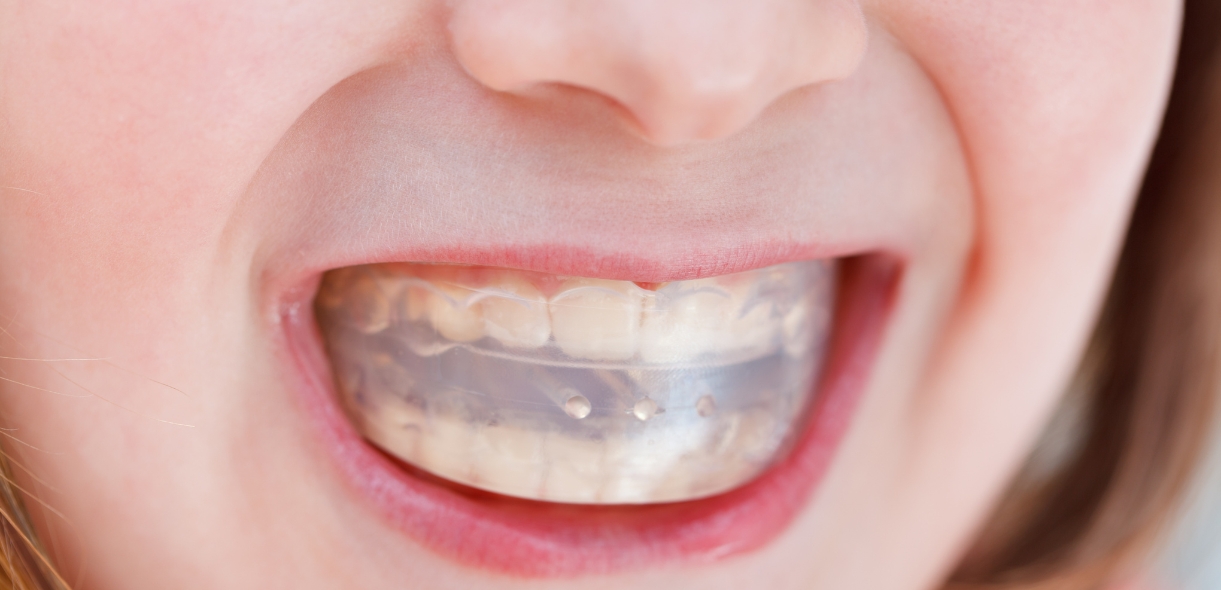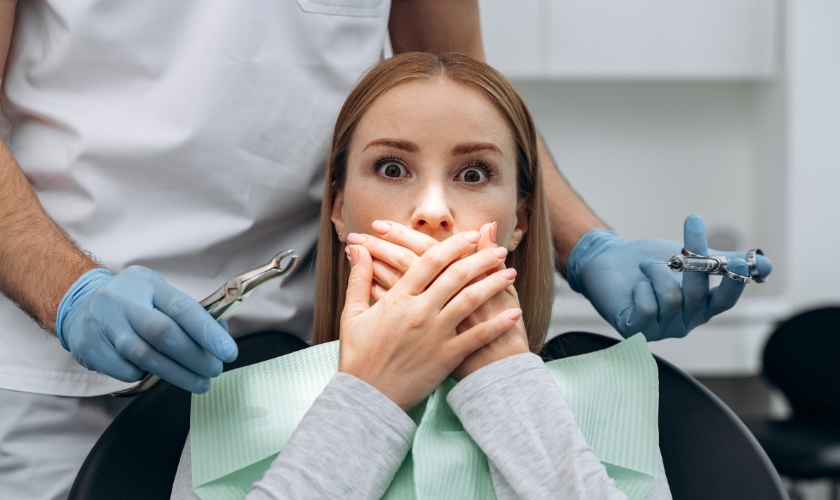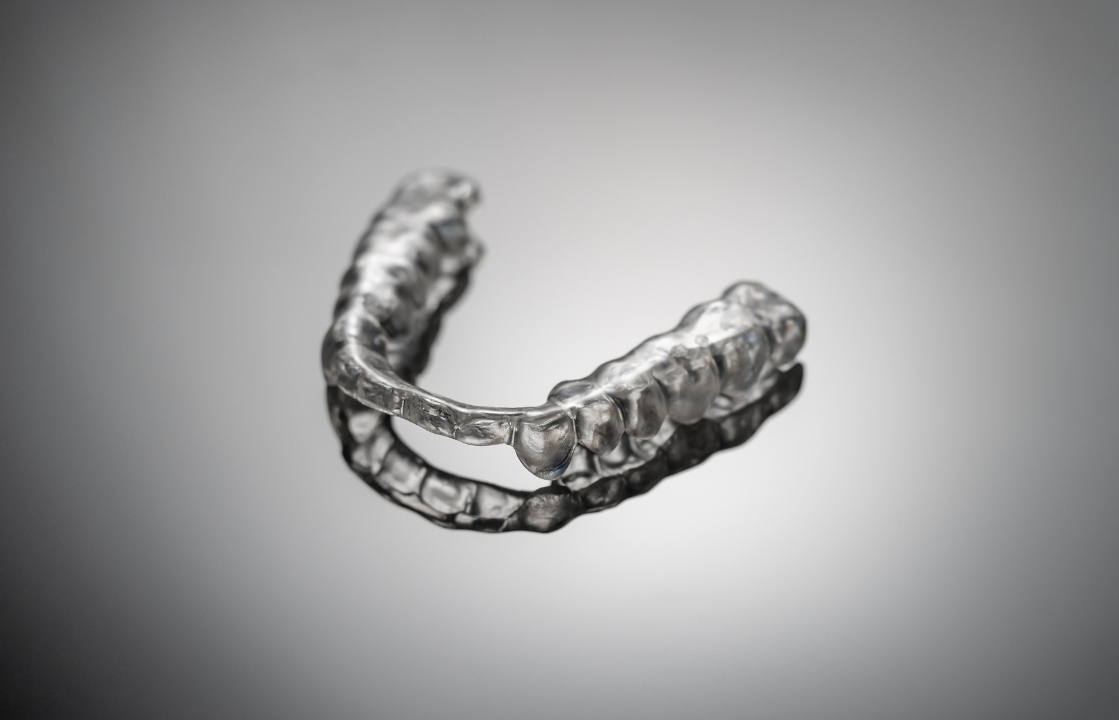$99 New Patient Special - Includes Exam and X-Rays.
When to Replace Your Nightguard

By Dentist At Plum Creek Kyle
Grinding your teeth at night? You’re not alone. Millions of people suffer from bruxism, a condition that can lead to chipped teeth, jaw pain, and headaches. Thankfully, nightguards offer a comfortable and effective solution. But like any trusty tool, even your nightguard needs to be replaced eventually. Here’s a comprehensive guide to help you understand when to replace your nightguard, focusing on its lifespan, frequency of replacement, and proper cleaning techniques.
How Long Do Nightguards Last?
Night guards aren’t indestructible, and their longevity depends on several factors:
- Material: Hard guards made from acrylic or polyvinyl chloride (PVC) are more durable than softer models, typically lasting 2-5 years. Soft guards made from polyurethane or silicone usually need replacing every 1-2 years.
- Frequency of Use: Wearing your nightguard every night naturally accelerates wear and tear, while occasional use stretches its lifespan.
- Teeth Grinding Severity: The intensity of your teeth grinding puts immense pressure on the guard. Severe grinders might need to replace their guard more frequently.
- Care and Cleaning: Proper cleaning and storage contribute significantly to your guard’s life. Neglecting these practices can weaken it and require sooner replacement.
How Often to Replace Your Nightguard
While the factors above influence individual needs, here’s a general guideline for when to replace your night guard:
- Every 1-2 years: This is the standard recommendation for most nightguards, especially softer options.
- Every 6 months: If you’re a severe grinder or use a soft guard, consider replacing it every 6 months.
- Immediate replacement: Visible signs of damage like cracks, tears, or significant discoloration warrant immediate replacement, regardless of its age.
Signs Your Nightguard Needs Replacing
Don’t just rely on timeframes. Be mindful of these red flags that scream “Replace me!”:
- Loose fit: A loose guard won’t properly protect your teeth and might even aggravate your jaw pain.
- Cracks or tears: Compromised material loses its protective function and could even pose a choking hazard.
- Discoloration: While some staining is normal, excessive buildup indicates bacteria growth and potential hygiene issues.
- Uncomfortable fit: If your guard is causing irritation or pain, it might not be fitting correctly and could even damage your teeth.
- Changes in your bite: If your teeth have shifted, your old guard might no longer provide optimal protection.
How to Clean Your Nightguard
Proper cleaning extends your night guard’s life and ensures optimal hygiene:
- Brush it gently after each use with a soft toothbrush and mild, non-abrasive toothpaste.
- Rinse it thoroughly with lukewarm water.
- Soak it occasionally in a gentle mouthwash (not for children) for 15-20 minutes.
- Avoid hot water and harsh chemicals which can warp or damage the material.
- Air-dry it completely in a clean, ventilated space. Do not store it in a sealed container while damp.
- Clean your case regularly with soap and water to prevent bacteria buildup.
Choosing the Right Replacement Nightguard
It’s crucial to replace your old guard with one that effectively protects your teeth. Here are some options:
- Custom-made: Professionally fitted by your dentist, these offer the best fit and protection but are costlier.
- Over-the-counter: Available in pharmacies in various sizes and styles, they’re affordable but might not fit perfectly.
- Boil-and-bite: These soften in hot water and mold to your teeth, offering a more customized fit than generic guards.
Consult your dentist if you’re unsure which type of replacement nightguard is right for you. They can examine your teeth, assess your grinding severity, and recommend the most suitable option.
Investing in Sleep and Oral Health
Replacing your nightguard when needed is a worthwhile investment in your sleep and oral health. It safeguards your teeth from grinding, preventing costly dental repairs and potential health complications. By following these guidelines and caring for your nightguard properly, you can enjoy its protective benefits for a long time. So, prioritize a good night’s sleep and healthy teeth – replace your nightguard when it’s time, and rest assured knowing your smile is well-protected.
Night guards, those trusty shields for our chompers during sleep, aren’t invincible. While they valiantly fend off the ravages of nighttime teeth grinding, their protective powers eventually wane. But fear not, fellow grinders! Knowing when to replace your custom nightguard is the key to maintaining a happy smile and restful slumber. This article delves into the crucial signs and factors that signal it’s time for a fresh guard, ensuring your teeth stay sparkling and your sleep stays sound. So, ditch the worn-out shield and embrace the power of a new one – your teeth and sleep will thank you for it!






